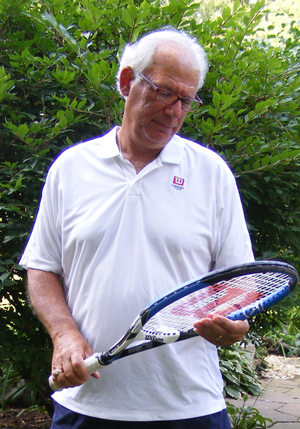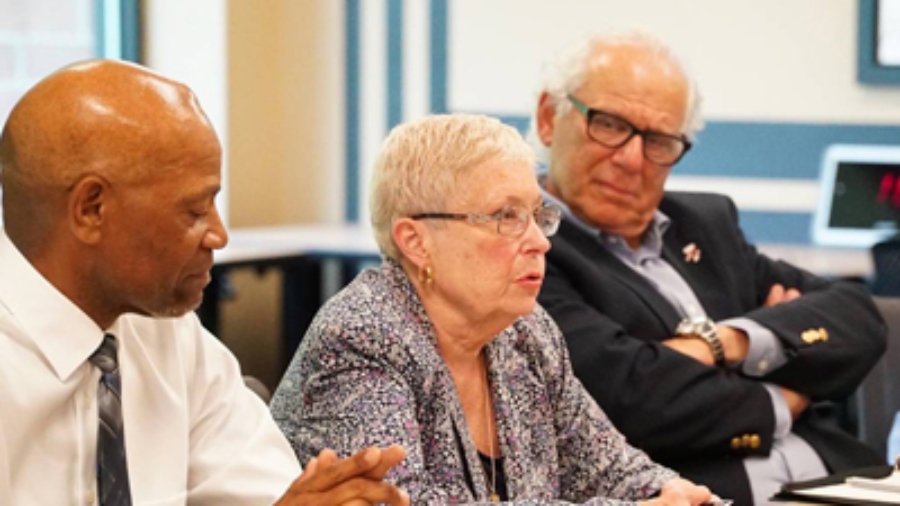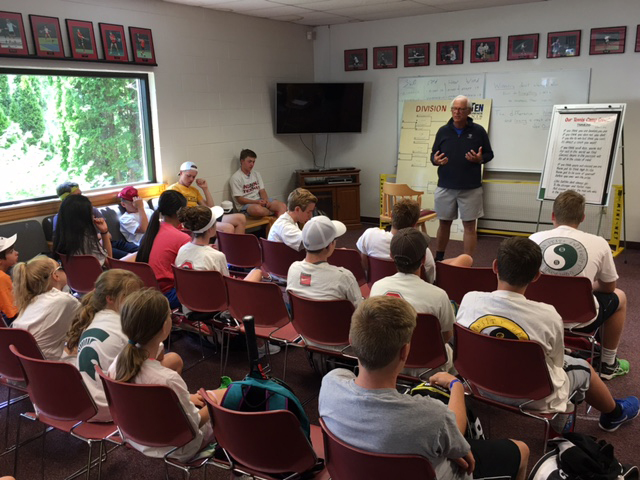Does your facility have a “Company Culture”? by Denny Schackter

Several weeks ago I was thinking about my career as an industry Rep. Thoughts brought me back fondly about the great customers I had and the fine facilities they were a part of. I teach at several of those places now as a retiree and was absorbing what I see in each of the three. Thinking, do these facilities have a “company culture.”? I guess answers lies within the management of the Clubs and their members. I have not asked them if they thought they had one.
Recently, there was a local tennis meeting and asked the guy next to me what his Company Culture is. He owns an insurance biz started by his Dad many years ago. He said we talk about it all the time and remind our employees that they need to adhere to “shmidle.” I asked, “what the hell is “schmidle”?. He said, “its service to midsize businesses.” Hence, “shmidle.” Good stuff!
Reluctantly, yours truly got fitted with hearing aids. I asked the technician if C____O had a company culture. She said, ‘we talk about it all the time.” She felt, on an equal basis, that employees were treated the same as customers because if the employee was treated well, the customer would be treated well also. Good stuff again!
Each Monday, the Chicago Tribune publishes their Business Section with a subtitle called “Success.” Ironically, in the May 28, 2018 edition, “The Importance of Core Values” was the title of the feature article. Good timing is beautiful and It came my way.
Robert Glazer is the founder and managing director of global performance marketing agency, Acceleration Partners. His article really hit home with me because I often wonder what facilities are thinking regarding their operations. In his article, his first point is “Choose values that make your business stand apart.” Looking at Clubs, there is a great deal of “sameness.” Adult lessons and drills, junior lessons and drills, in-house leagues etc. What separates one from another could be staff, or the front desk personnel, perhaps a great whirlpool, but it is something.
Does your club have that “something?” He then says in discussion, “keep the list short.” Three he mentioned were, “Own it. We step up to the opportunities in front of us, bet on our own abilities, and rise to the occasion.” Isn’t that a great statement? That gets me fired up every time I read it. “Embrace relationships; relationships advance our personal and professional lives contributing greatly to our successes.” Looking at Clubs in my footprint I often wonder if the staff members hang out together or are there company events that enhance in house relationships? I am sure you readers can improve that aspect of your Club operations with little effort. He then added “excel and improve.” That statement is self-explanatory.
After the “values” discussion, he moved on to “communicate and support the values you set, encourage collective enforcement and hire, promote and fire based on values.”
As a periodic contributor to TI magazine, what I view is what I write. I am also a prolific reader which helps me find things pertinent to our industry that, unfortunately, are not led by by it. The “culture” question is one I thought TI’s readers needed to ask. Am I correct or not?
I then looked at what Forbes had to say. In February 2017, three items were cited as critical to a Company culture. First, is Identity. A great comment made was, “if your company is one that prioritizes setting and meeting goals, then your individual workers will be more likely to set and meet goals of their own.” Retention was mentioned next and stated was, “when people feel like they belong to an organization, they’re more likely to stick around for the long term. The last term mentioned was “image.” That’s another great subject, especially related to clubs and facilities, “If you treat your employees well and have a fun-loving corporate atmosphere, your customers will see you as a fun loving, generous brand.”
Having no original thought on this subject because I am just a tennis guy, not a Corporate big-wig, I am smart enough to look for others thoughts that deal in the vast world of businesses.
Hoping I am wrong, but I truly believe our industry facilities rarely chat about their “culture.” We are all guilty of not allocating time to just think. Our lives are filled with filling classes, cleaning up the club, hiring staff and the like, but time is rarely spent on what is needed to keep us ticking.





